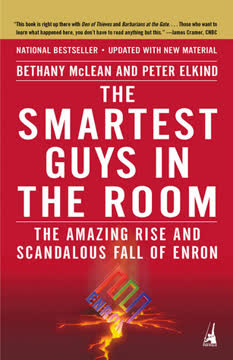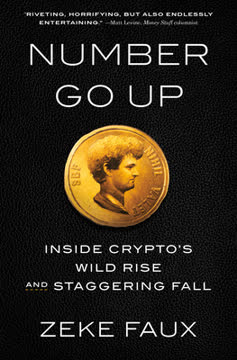Key Takeaways
1. The U.S. government's transition process is crucial but often neglected
"People don't understand that a bungled transition becomes a bungled presidency."
Importance of transition: The presidential transition is a critical period for ensuring the continuity of government operations and national security. However, it is often overlooked or mishandled. The book describes how the Trump transition team initially dismissed the importance of preparation, with Trump himself questioning the need for a transition team.
Consequences of poor transitions: A poorly executed transition can lead to:
- Inadequate understanding of complex government operations
- Delays in filling key positions
- Increased vulnerability to national security risks
- Missed opportunities for policy implementation
The author emphasizes that the transition process is not just about political appointments but about understanding the intricate workings of government agencies and their crucial roles in maintaining public safety, economic stability, and national security.
2. Departments like Energy and Agriculture are misunderstood yet vital
"If you talk to women scientists of my age, almost all of them have a story similar to mine."
Misconceptions about government agencies: Many people, including some politicians, have little understanding of what certain government departments actually do. The Department of Energy, for example, is largely responsible for managing the nuclear arsenal and conducting critical scientific research, rather than just dealing with energy policy.
Hidden importance: These departments play crucial roles in:
- National security (e.g., DOE's management of nuclear weapons)
- Scientific research and innovation
- Public health and safety (e.g., USDA's food safety programs)
- Economic stability (e.g., USDA's support for rural communities)
The book highlights how the lack of understanding about these departments' functions can lead to poor policy decisions and potentially dangerous situations when leadership positions are filled by individuals without relevant expertise or appreciation for the departments' missions.
3. Government data is a treasure trove for innovation and public good
"We're going to open all the data and go to every economics department and say, 'Hey, you want a PhD?'"
Value of government data: The U.S. government collects vast amounts of data across various domains, from weather patterns to economic indicators. This data, when made accessible, can drive innovation, improve public services, and inform policy decisions.
Examples of data-driven innovations:
- Improved weather forecasting and disaster preparedness
- Agricultural innovations and risk management for farmers
- Public health interventions and epidemic predictions
- Economic research on social mobility and inequality
The book emphasizes the importance of making government data open and accessible, highlighting initiatives like the appointment of the first U.S. Chief Data Scientist and efforts to encourage data-driven problem-solving across various sectors.
4. Weather prediction has improved dramatically, benefiting society
"It was unheard-of. When I started in the 1970s, the idea of predicting extreme events was almost forbidden. How can you see a storm before the storm can be seen?"
Advancements in meteorology: Weather forecasting has made significant strides in recent decades, evolving from educated guesswork to highly accurate predictive models. This improvement is due to advances in technology, data collection, and scientific understanding.
Impacts of better forecasting:
- Improved public safety through earlier storm warnings
- Economic benefits for industries dependent on weather (agriculture, transportation, etc.)
- Enhanced disaster preparedness and response
- More efficient resource allocation for governments and businesses
The book details how these improvements have saved countless lives and billions of dollars, while also highlighting the ongoing challenges in communicating weather risks effectively to the public.
5. The struggle between public service and private profit in government
"There is a rift in American life that was now coursing through American government. It wasn't between Democrats and Republicans. It was between the people who were in it for the mission, and the people who were in it for the money."
Conflict of interests: The book explores the tension between public servants motivated by a sense of mission and those driven by personal or corporate profit. This conflict is exemplified in various scenarios, such as the privatization of weather data and services.
Consequences of prioritizing profit:
- Reduced access to vital public services and information
- Potential compromises in public safety and well-being
- Erosion of trust in government institutions
- Misalignment of government priorities with public needs
The author argues that this shift towards a profit-driven model in government agencies can undermine their core missions and the public good they are meant to serve.
6. Rural America's dependence on and distrust of federal programs
"We'd give forty thousand dollars for a health clinic and the whole time you're like, Shit, this makes a difference."
Paradoxical relationship: Many rural Americans rely heavily on federal programs for economic support, infrastructure, and essential services. However, there's often a disconnect between this dependence and political attitudes that are skeptical or hostile towards government involvement.
Key federal supports for rural areas:
- Agricultural subsidies and crop insurance
- Rural development grants and loans
- Healthcare facilities and services
- Infrastructure projects (roads, broadband, etc.)
The book illustrates this paradox through stories of rural communities benefiting from government programs while simultaneously expressing anti-government sentiments, highlighting the complex political and cultural dynamics at play in rural America.
7. The importance of social science in public safety and risk communication
"You don't particularly care what the wind speed at five hundred millibars is. You want to know: What's it going to do to my house?"
Beyond hard science: The book emphasizes that effective public safety measures, particularly in areas like weather forecasting and disaster preparedness, require more than just accurate scientific data. Understanding human behavior and risk perception is crucial for communicating threats and motivating appropriate responses.
Integrating social science:
- Studying how people interpret and respond to warnings
- Developing more effective risk communication strategies
- Tailoring messages to different communities and demographics
- Addressing psychological factors that influence decision-making during crises
The author describes efforts within agencies like NOAA to incorporate social science research into their operations, recognizing that saving lives depends not just on predicting threats but on effectively communicating them to the public.
8. Trump administration's approach to data and science raises concerns
"They are going to politicize the science. My biggest concern is the misuse of science to support policies."
Shift in approach: The book details concerns about the Trump administration's handling of scientific data and expertise across various government agencies. This includes removing or suppressing certain data sets, appointing leaders skeptical of established science, and potentially prioritizing political or commercial interests over scientific consensus.
Potential consequences:
- Reduced public access to important information
- Undermining of evidence-based policymaking
- Erosion of scientific integrity in government agencies
- Long-term impacts on research funding and priorities
The author argues that these changes could have far-reaching effects on public health, environmental protection, and the overall role of science in government decision-making.
Last updated:
FAQ
What's "The Fifth Risk: Undoing Democracy" about?
- Exploration of Government Risks: The book delves into the risks associated with the U.S. government's transition and management, particularly under the Trump administration.
- Focus on Federal Agencies: It highlights the critical roles of federal agencies like the Department of Energy, Department of Agriculture, and NOAA, and the potential consequences of mismanagement.
- Transition Challenges: The narrative begins with the chaotic transition period following Trump's election, emphasizing the lack of preparedness and understanding of governmental functions.
- Impact of Ignorance: Michael Lewis illustrates how ignorance and neglect in government can lead to significant risks, including national security threats and public safety issues.
Why should I read "The Fifth Risk: Undoing Democracy"?
- Insight into Governance: The book provides a detailed look at the inner workings of the U.S. government and the importance of competent management.
- Understanding Risks: It offers a perspective on the unseen risks that federal agencies manage, which are crucial for national safety and progress.
- Timely Political Commentary: Lewis's work is a timely critique of the Trump administration's approach to governance, making it relevant for those interested in current affairs.
- Engaging Storytelling: Michael Lewis is known for his engaging narrative style, making complex topics accessible and compelling.
What are the key takeaways of "The Fifth Risk: Undoing Democracy"?
- Importance of Competent Leadership: Effective governance requires knowledgeable and prepared leaders who understand the complexities of federal agencies.
- Consequences of Neglect: Ignoring the expertise and functions of government agencies can lead to catastrophic risks, from nuclear safety to climate change.
- Value of Public Service: The book highlights the dedication of civil servants and the critical role they play in maintaining national stability.
- Need for Transparency and Data: Access to and understanding of government data is essential for informed decision-making and public safety.
How does Michael Lewis portray the Trump administration in "The Fifth Risk"?
- Chaotic Transition: Lewis describes the Trump administration's transition as disorganized and lacking in understanding of governmental responsibilities.
- Neglect of Expertise: The administration is portrayed as dismissive of expert advice and the critical functions of federal agencies.
- Focus on Short-term Gains: There is an emphasis on the administration's preference for short-term political wins over long-term national interests.
- Impact on Public Safety: The book suggests that this approach increases the likelihood of national and global risks.
What are the "five risks" mentioned in "The Fifth Risk"?
- Nuclear Weapons Management: The risk of mishandling nuclear weapons and materials, which could lead to catastrophic consequences.
- Climate Change and Environmental Risks: The neglect of scientific research and data related to climate change and environmental protection.
- Data Management and Transparency: The importance of maintaining and utilizing government data for public safety and informed decision-making.
- Project Management Failures: The risk of mismanaging large-scale government projects, leading to inefficiencies and potential disasters.
- Public Health and Safety: The potential for increased public health risks due to inadequate government oversight and preparedness.
How does "The Fifth Risk" address the role of federal agencies?
- Critical Functions: The book emphasizes the essential roles that federal agencies play in managing national risks and ensuring public safety.
- Challenges Faced: It highlights the challenges these agencies face, including budget cuts, political interference, and lack of support.
- Dedicated Workforce: Lewis portrays the dedication and expertise of civil servants who work within these agencies to mitigate risks.
- Impact of Mismanagement: The narrative illustrates how mismanagement and neglect can undermine the effectiveness of these agencies.
What specific examples does Michael Lewis use to illustrate government risks in "The Fifth Risk"?
- Department of Energy: The book discusses the DOE's role in managing nuclear weapons and energy innovation, highlighting the risks of inadequate oversight.
- Department of Agriculture: Lewis explores the USDA's impact on food safety, rural development, and nutrition programs, emphasizing the consequences of neglect.
- NOAA and Weather Forecasting: The importance of accurate weather data and forecasting is illustrated through NOAA's work and the risks of privatizing weather information.
- Hanford Nuclear Site: The challenges of managing nuclear waste at Hanford are used to exemplify the risks of poor project management.
What are the best quotes from "The Fifth Risk: Undoing Democracy" and what do they mean?
- "The basic role of government is to keep us safe." This quote underscores the fundamental responsibility of government to protect its citizens from various risks.
- "The risk we should most fear is not the risk we easily imagine. It is the risk that we don’t." Lewis highlights the importance of anticipating and preparing for unforeseen risks.
- "There is an upside to ignorance, and a downside to knowledge." This reflects the book's theme of how willful ignorance can be politically advantageous but dangerous for governance.
- "People who had never experienced a collapsed state were slow to appreciate a state that had not yet collapsed." This quote emphasizes the complacency that can arise from taking stable governance for granted.
How does "The Fifth Risk" explore the theme of public service?
- Dedication of Civil Servants: The book highlights the commitment and expertise of government employees who work to manage national risks.
- Challenges in Public Service: It addresses the difficulties faced by civil servants, including political interference and lack of resources.
- Importance of Expertise: Lewis emphasizes the need for knowledgeable and experienced individuals in government roles to ensure effective management.
- Public Perception: The narrative explores the disconnect between the public's perception of government work and the reality of its importance.
What lessons can be learned from "The Fifth Risk: Undoing Democracy"?
- Value of Preparedness: The importance of being prepared for unforeseen risks and the role of government in ensuring national safety.
- Need for Competent Leadership: The necessity of having informed and capable leaders who understand the complexities of governance.
- Significance of Data and Science: The critical role of data and scientific research in making informed policy decisions and managing risks.
- Impact of Neglect: The potential consequences of neglecting government functions and expertise, leading to increased national vulnerabilities.
How does Michael Lewis use storytelling to convey his message in "The Fifth Risk"?
- Engaging Narratives: Lewis uses compelling stories of individuals within the government to illustrate the broader themes of risk and governance.
- Personal Accounts: The book includes personal accounts from civil servants, providing insight into their dedication and challenges.
- Real-world Examples: Lewis uses real-world examples and case studies to highlight the importance of effective government management.
- Accessible Language: The narrative is written in an accessible style, making complex topics understandable and engaging for readers.
What impact has "The Fifth Risk: Undoing Democracy" had on public discourse?
- Increased Awareness: The book has raised awareness about the critical functions of federal agencies and the risks of mismanagement.
- Political Commentary: It has contributed to discussions about the Trump administration's approach to governance and its potential consequences.
- Public Engagement: Lewis's work has engaged readers in conversations about the importance of competent leadership and public service.
- Influence on Policy: The book has influenced policymakers and thought leaders to consider the long-term implications of government decisions.
Review Summary
The Fifth Risk explores the Trump administration's mishandling of government agencies and the potential consequences. Reviewers praise Lewis's storytelling and insights into often-overlooked government functions, but some criticize bias and lack of sourcing. The book highlights dedicated civil servants and the risks of ignorance in governance. Many readers found it eye-opening and relevant, especially in light of recent events. While some felt it was not Lewis's best work, most agreed it was an important read that exposed critical issues in the current administration.
Similar Books









Download PDF
Download EPUB
.epub digital book format is ideal for reading ebooks on phones, tablets, and e-readers.













